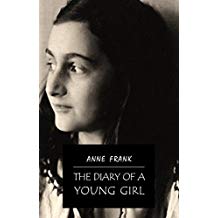Date: 24 February 2019
Location: John & Marion
The Happy Bookers met this Sunday afternoon at Marion and John’s home. The book under discussion was The Diary of a Young Girl by Anne Frank.
A number of members expressed amazement that such insight and literary skill could have come from a fourteen-year-old. Several contributions to this were suggested:
- That this was a different moment in history, when people had leisure and a lack of distraction so that they had time to write;
- That Continental education was more demanding than that in current America;
- That the culture as a whole encouraged and supported involvement in high culture;
- That her parents had been raised in wealthy and cultivated families;
- That because of her personality or her lack of other outlets she spent many hours reading fiction and studying history and other subjects.
But aside from these factors, Anne Frank’s intelligence lay outside the norms of the ordinary—in short she was a genius. However, Linda B. and others recalled instances of amazing writing from students of this age, so perhaps her abilities would not go unmatched. Nevertheless her diary has been called the most influential book of the twentieth century.
The book seems to have impressed us with a fresher sense of the Holocaust. This effect stands in contrast to the experience of most members, who recalled history courses that made no mention of the Holocaust. This omission in schooling is being rectified. Some learned about the Holocaust early in life. Gina recalled seeing the movie when she was fourteen years old. She recognized some of Anne Frank’s experiences that she had shared, and that the sound of sirens alarmed her years afterward.
We wondered about the size and crowding of the “Secret Annex.” It was small but the couples at least each had their own room, and there were a couple of common areas. Still there was not much privacy. Everyone could hear the Van Daans’ shouting matches, and Anne had to sleep in the same room with Dussel. (How could her parents arrange or allow that?) Anne had to share the work table with Dussel, who would not allow her any extra minute beyond her defined hour or two. Still Anne and Peter found the means to have time together.
We wonder nevertheless that Anne was able to handle two years of this lack of privacy, of constant interpersonal friction (specially between Anne and her mother), and of confinement without ever getting out of doors or hardly even looking out a window. Add to these difficulties the constant fear. Nazis were all about. Stories came of friends and others who were seized and deported. Burglars made intrusions. And Dussel behaved dangerously.
On the positive side two passages were cited. One was when her periods started and Anne felt a secret pride. Another was when she was able to go topside with Peter and look at the moon and stars. Her joy was lyrical, and she expressed faith in the curative and humanizing powers of nature.
—John
